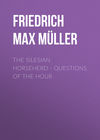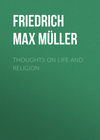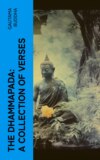Читать книгу: «Chips from a German Workshop, Volume 1», страница 14
It has been said that Buddha and Kapila were both atheists, and that Buddha borrowed his atheism from Kapila. But atheism is an indefinite term, and may mean very different things. In one sense every Indian philosopher was an atheist, for they all perceived that the gods of the populace could not claim the attributes that belong to a Supreme Being. But all the important philosophical systems of the Brahmans admit, in some form or other, the existence of an Absolute and Supreme Being, the source of all that exists, or seems to exist. Kapila, when accused of atheism, is not accused of denying the existence of an Absolute Being. He is accused of denying the existence of Îsvara, which in general means the Lord, but which in the passage where it occurs, refers to the Îsvara of the Yogins, or mystic philosophers. They maintained that in an ecstatic state man possesses the power of seeing God face to face, and they wished to have this ecstatic intuition included under the head of sensuous perceptions. To this Kapila demurred. You have not proved the existence of your Lord, he says, and therefore I see no reason why I should alter my definition of sensuous perception in order to accommodate your ecstatic visions. The commentator narrates that this strong language was used by Kapila in order to silence the wild talk of the Mystics, and that, though he taunted his adversaries with having failed to prove the existence of their Lord, he himself did not deny the existence of a Supreme Being. Kapila, however, went further. He endeavoured to show that all the attributes which the Mystics ascribed to their Lord are inappropriate. He used arguments very similar to those which have lately been used with such ability by a distinguished Bampton Lecturer. The supreme lord of the Mystics, Kapila argued, is either absolute and unconditioned (mukta), or he is bound and conditioned (baddha). If he is absolute and unconditioned, he cannot enter into the condition of a Creator; he would have no desires which could instigate him to create. If, on the contrary, he is represented as active, and entering on the work of creation, he would no longer be the absolute and unchangeable Being which we are asked to believe in. Kapila, like the preacher of our own days, was accused of paving the road to atheism, but his philosophy was nevertheless admitted as orthodox, because, in addition to sensuous perception and inductive reasoning, Kapila professed emphatically his belief in revelation, i. e. in the Veda, and allowed to it a place among the recognised instruments of knowledge. Buddha refused to allow to the Vedas any independent authority whatever, and this constituted the fundamental difference between the two philosophers.
Whether Kapila's philosophy was really in accordance with the spirit of the Veda, is quite a different question. No philosophy, at least nothing like a definite system, is to be found in the sacred hymns of the Brahmans; and though the Vedânta philosophy does less violence to the passages which it quotes from the Veda, the authors of the Veda would have been as much surprised at the consequences deduced from their words by the Vedântin, as by the strange meaning attributed to them by Kapila. The Vedânta philosopher, like Kapila, would deny the existence of a Creator in the usual sense of the word. He explained the universe as an emanation from Brahman, which is all in all. Kapila admitted two principles, an absolute Spirit and Nature, and he looked upon the universe as produced by a reflection of Nature thrown on the mirror of the absolute Spirit. Both systems seem to regard creation, or the created world, as a misfortune, as an unfortunate accident. But they maintain that its effects can be neutralised, and that emancipation from the bonds of earthly existence is possible by means of philosophy. The Vedânta philosopher imagines he is free when he has arrived at the knowledge that nothing exists but Brahman; that all phenomena are merely the result of ignorance; that after the destruction of that ignorance, and of its effects, all is merged again in Brahman, the true source of being, thought, and happiness. Kapila taught that the spirit became free from all mundane fetters as soon as it perceived that all phenomena were only passing reflections produced by nature upon the spirit, and as soon as it was able to shut its eyes to those illusory visions. Both systems therefore, and the same applies to all the other philosophical systems of the Brahmans, admitted an absolute or self-existing Being as the cause of all that exists or seems to exist. And here lies the specific difference between Kapila and Buddha. Buddha, like Kapila, maintained that this world had no absolute reality, that it was a snare and an illusion. The words, 'All is perishable, all is miserable, all is void,' must frequently have passed his lips. But we cannot call things unreal unless we have a conception of something that is real. Where, then, did Buddha find a reality in comparison with which this world might be called unreal? What remedy did he propose as an emancipation from the sufferings of this life? Difficult as it seems to us to conceive it, Buddha admits of no real cause of this unreal world. He denies the existence not only of a Creator, but of any Absolute Being. According to the metaphysical tenets, if not of Buddha himself, at least of his sect, there is no reality anywhere, neither in the past nor in the future. True wisdom consists in perceiving the nothingness of all things, and in a desire to become nothing, to be blown out, to enter into Nirvâna. Emancipation is obtained by total extinction, not by absorption in Brahman, or by a recovery of the soul's true estate. If to be is misery, not to be must be felicity, and this felicity is the highest reward which Buddha promised to his disciples. In reading the Aphorisms of Kapila, it is difficult not to see in his remarks on those who maintain that all is void, covert attacks on Buddha and his followers. In one place (I. 43) Kapila argues that if people believed in the reality of thought only, and denied the reality of external objects, they would soon be driven to admit that nothing at all exists, because we perceive our thoughts in the same manner as we perceive external objects. This naturally leads him to an examination of that extreme doctrine, according to which all that we perceive is void, and all is supposed to perish, because it is the nature of things that they should perish. Kapila remarks in reference to this view (I. 45), that it is a mere assertion of persons who are 'not enlightened,' in Sanskrit a-buddha, a sarcastic expression in which it is very difficult not to see an allusion to Buddha, or to those who claimed for him the title of the Enlightened. Kapila then proceeds to give the best answer that could be given to those who taught that complete annihilation must be the highest aim of man, as the only means of a complete cessation of suffering. 'It is not so,' he says, 'for if people wish to be free from suffering, it is they themselves who wish to be free, just as in this life it is they themselves who wish to enjoy happiness. There must be a permanent soul in order to satisfy the yearnings of the human heart, and if you deny that soul, you have no right to speak of the highest aim—of man.'
Whether the belief in this kind of Nirvâna, i. e. in a total extinction of being, personality, and consciousness, was at any time shared by the large masses of the people, is difficult either to assert or deny. We know nothing in ancient times of the religious convictions of the millions. We only know what a few leading spirits believed, or professed to believe. That certain individuals should have spoken and written of total extinction as the highest aim of man, is intelligible. Job cursed the day on which he was born, and Solomon praised the 'dead which are already dead, more than the living which are yet alive,' 'Yea, better is he than both they,' he said, 'which hath not yet been, who hath not seen the evil work that is done under the sun,' Voltaire said in his own flippant way, 'On aime la vie, mais le néant ne laisse pas d'avoir du bon;' and a modern German philosopher, who has found much favour with those who profess to despise Kant, Schelling, and Hegel, writes, 'Considered in its objective value, it is more than doubtful that life is preferable to the Nothing. I should say even, that if experience and reflection could lift up their voices they would recommend to us the Nothing. We are what ought not to be, and we shall therefore cease to be.' Under peculiar circumstances, in the agonies of despair, or under the gathering clouds of madness, such language is intelligible; but to believe, as we are asked to believe, that one half of mankind had yearned for total annihilation, would be tantamount to a belief that there is a difference in kind between man and man. Buddhist philosophers, no doubt, held this doctrine, and it cannot be denied that it found a place in the Buddhist canon. But even among the different schools of Buddhist philosophers, very different views are adopted as to the true meaning of Nirvâna, and with the modern Buddhists of Burmah, Nigban, as they call it, is defined simply as freedom from old age, disease, and death. We do not find fault with M. Barthélemy Saint-Hilaire for having so emphatically pressed the charge of nihilism against Buddha himself. In one portion of the Buddhist canon the most extreme views of nihilism are put into his mouth. All we can say is that that canon is later than Buddha, and that in the same canon66 the founder of Buddhism, after having entered into Nirvâna, is still spoken of as living, nay, as showing himself to those who believe in him. Buddha, who denied the existence, or at least the divine nature, of the gods worshipped by the Brahmans, was raised himself to the rank of a deity by some of his followers (the Aisvarikas), and we need not wonder therefore if his Nirvâna too was gradually changed into an Elysian field. And finally, if we may argue from human nature, such as we find it at all times and in all countries, we confess that we cannot bring ourselves to believe that the reformer of India, the teacher of so perfect a code of morality, the young prince who gave up all he had in order to help those whom he saw afflicted in mind, body, or estate, should have cared much about speculations which he knew would either be misunderstood, or not understood at all, by those whom he wished to benefit; that he should have thrown away one of the most powerful weapons in the hands of every religious teacher, the belief in a future life, and should not have seen, that if this life was sooner or later to end in nothing, it was hardly worth the trouble which he took himself, or the sacrifices which he imposed on his disciples.
April, 1862.
X.
BUDDHIST PILGRIMS.67
M. Stanislas Julien has commenced the publication of a work entitled, 'Voyages des Pèlerins Bouddhistes.' The first volume, published in the year 1853, contains the biography of Hiouen-thsang, who, in the middle of the seventh century a.d., travelled from China through Central Asia to India. The second, which has just reached us, gives us the first portion of Hiouen-thsang's own diary.
There are not many books of travel which can be compared to these volumes. Hiouen-thsang passed through countries which few had visited before him. He describes parts of the world which no one has explored since, and where even our modern maps contain hardly more than the ingenious conjectures of Alexander von Humboldt. His observations are minute; his geographical, statistical, and historical remarks most accurate and trustworthy. The chief object of his travels was to study the religion of Buddha, the great reformer of India. Some Chinese pilgrims visited India before, several after, his time. Hiouen-thsang, however, is considered by the Chinese themselves as the most distinguished of these pilgrims, and M. Stanislas Julien has rightly assigned to him the first place in his collection.
In order to understand what Hiouen-thsang was, and to appreciate his life and his labours, we must first cast a glance at the history of a religion which, however unattractive and even mischievous it may appear to ourselves, inspired her votary with the true spirit of devotion and self-sacrifice. That religion has now existed for exactly 2,400 years. To millions and millions of human beings it has been the only preparation for a higher life placed within their reach. And even at the present day it counts among the hordes of Asia a more numerous array of believers than any other faith, not excluding Mohammedanism or Christianity. The religion of Buddha took its origin in India about the middle of the sixth century b.c., but it did not assume its political importance till about the time of Alexander's invasion. We know little, therefore, of its first origin and spreading, because the canonical works on which we must chiefly rely for information belong to a much later period, and are strongly tinged with a legendary character. The very existence of such a being as Buddha, the son of Suddhodana, king of Kapilavastu, has been doubted. But what can never be doubted is this, that Buddhism, such as we find it in Russia68 and Sweden69 on the very threshold of European civilisation, in the north of Asia, in Mongolia, Tatary, China, Tibet, Nepal, Siam, Burmah, and Ceylon, had its origin in India. Doctrines similar to those of Buddha existed in that country long before his time. We can trace them like meandering roots below the surface long before we reach the point where the roots strike up into a stem, and the stem branches off again into fruit-bearing branches. What was original and new in Buddha was his changing a philosophical system into a practical doctrine; his taking the wisdom of the few, and coining as much of it as he thought genuine for the benefit of the many; his breaking with the traditional formalities of the past, and proclaiming for the first time, in spite of castes and creeds, the equality of the rich and the poor, the foolish and the wise, the 'twice-born' and the outcast. Buddhism, as a religion and as a political fact, was a reaction against Brahmanism, though it retained much of that more primitive form of faith and worship. Buddhism, in its historical growth, presupposes Brahmanism, and, however hostile the mutual relation of these two religions may have been at different periods of Indian history, it can be shown, without much difficulty, that the latter was but a natural consequence of the former.
The ancient religion of the Aryan inhabitants of India had started, like the religion of the Greeks, the Romans, the Germans, Slaves, and Celts, with a simple and intelligible mythological phraseology. In the Veda—for there is but one real Veda—the names of all the so-called gods or Devas betray their original physical character and meaning without disguise. The fire was praised and invoked by the name of "Agni" (ignis); the earth by the name of "Prithvî" (the broad); the sky by the name of "Dyu" (Jupiter), and afterwards of "Indra;" the firmament and the waters by the name of "Varuna," or Οὐραvὁς. The sun was invoked by many names, such as "Sûrya," "Savitri," "Vishnu," or "Mitra;" and the dawn rejoiced in such titles as "Ushas," "Urvasi," "Ahanâ," and "Sûryâ." Nor was the moon forgotten. For though it is mentioned but rarely under its usual name of "Kandra," it is alluded to under the more sacred appellation of "Soma;" and each of its four phases had received its own denomination. There is hardly any part of nature, if it could impress the human mind in any way with the ideas of a higher power, of order, eternity, or beneficence,—whether the winds, or the rivers, or the trees, or the mountains,—without a name and representative in the early Hindu Pantheon. No doubt there existed in the human mind, from the very beginning, something, whether we call it a suspicion, an innate idea, an intuition, or a sense of the Divine. What distinguishes man from the rest of the animal creation is chiefly that ineradicable feeling of dependence and reliance upon some higher power, a consciousness of bondage, from which the very name of "religion" was derived. "It is He that hath made us, and not we ourselves." The presence of that power was felt everywhere, and nowhere more clearly and strongly than in the rising and setting of the sun, in the change of day and night, of spring and winter, of birth and death. But, although the Divine presence was felt everywhere, it was impossible in that early period of thought, and with a language incapable as yet of expressing anything but material objects, to conceive the idea of God in its purity and fullness, or to assign to it an adequate and worthy expression. Children cannot think the thoughts of men, and the poets of the Veda could not speak the language of Aristotle. It was by a slow process that the human mind elaborated the idea of one absolute and supreme Godhead; and by a still slower process that the human language matured a word to express that idea. A period of growth was inevitable, and those who, from a mere guess of their own, do not hesitate to speak authoritatively of a primeval revelation, which imparted to the Pagan world the idea of the Godhead in all its purity, forget that, however pure and sublime and spiritual that revelation might have been, there was no language capable as yet of expressing the high and immaterial conceptions of that Heaven-sent message. The real history of religion, during the earliest mythological period, represents to us a slow process of fermentation in thought and language, with its various interruptions, its overflowings, its coolings, its deposits, and its gradual clearing from all extraneous and foreign admixture. This is not only the case among the Indo-European or Aryan races in India, in Greece, and in Germany. In Peru, and wherever the primitive formations of the intellectual world crop out, the process is exactly the same. "The religion of the sun," as it has been boldly said by the author of the "Spanish Conquest in America," "was inevitable." It was like a deep furrow which that heavenly luminary drew, in its silent procession from east to west, over the virgin mind of the gazing multitude; and in the impression left there by the first rising and setting of the sun, there lay the dark seed of a faith in a more than human being, the first intimation of a life without beginning, of a world without end. Manifold seed fell afterwards into the soil once broken. Something divine was discovered in everything that moved and lived. Names were stammered forth in anxious haste, and no single name could fully express what lay hidden in the human mind and wanted expression—the idea of an absolute, and perfect, and supreme, and immortal Essence. Thus a countless host of nominal gods was called into being, and for a time seemed to satisfy the wants of a thoughtless multitude. But there were thoughtful men at all times, and their reason protested against the contradictions of a mythological phraseology, though it had been hallowed by sacred customs and traditions. That rebellious reason had been at work from the very first, always ready to break the yoke of names and formulas which no longer expressed what they were intended to express. The idea which had yearned for utterance was the idea of a supreme and absolute Power, and that yearning was not satisfied by such names as "Kronos," "Zeus," and "Apollon." The very sound of such a word as "God," used in the plural, jarred on the ear, as if we were to speak of two universes, or of a single twin. There are many words, as Greek and Latin grammarians tell us, which, if used in the plural, have a different meaning from what they have in the singular. The Latin "æedes" means a temple; if used in the plural it means a house. "Deus" and Θεὁς ought to be added to the same class of words. The idea of supreme perfection excluded limitation, and the idea of God excluded the possibility of many gods. This may seem language too abstract and metaphysical for the early times of which we are speaking. But the ancient poets of the Vedic hymns have expressed the same thought with perfect clearness and simplicity. In the Rig-veda (I. 164, 46) we read:—
"That which is one the sages speak of in many ways—they call it 'Agni,' 'Yama,' 'Mâtarisvan.'"
Besides the plurality of gods, which was sure to lead to their destruction, there was a taint of mortality which they could not throw off. They all derived their being from the life of nature. The god who represented the sun was liable, in the mythological language of antiquity, to all the accidents which threatened the solar luminary. Though he might rise in immortal youth in the morning, he was conquered by the shadows of the night, and the powers of winter seemed to overthrow his heavenly throne. There is nothing in nature free from change, and the gods of nature fell under the thralldom of nature's laws. The sun must set, and the solar gods and heroes must die. There must be one God, there must be one unchanging Deity; this was the silent conviction of the human mind. There are many gods, liable to all the vicissitudes of life; this was everywhere the answer of mythological religion.
It is curious to observe in how many various ways these two opposite principles were kept for a time from open conflict, and how long the heathen temples resisted the enemy which was slowly and imperceptibly undermining their very foundations. In Greece this mortal element, inherent in all gods, was eliminated to a great extent by the conception of heroes. Whatever was too human in the ancient legends told of Zeus and Apollon was transfered to so-called half-gods or heroes, who were represented as the sons or favorites of the gods, and who bore their fate under a slightly altered name. The twofold character of Herakles as a god and as a hero is acknowledged even by Herodotus, and some of his epithets would have been sufficient to indicate his solar and originally divine character. But, in order to make some of the legends told of the solar deity possible or conceivable, it was necessary to represent Herakles as a more human being, and to make him rise to the seat of the Immortals only after he had endured toils and sufferings incompatible with the dignity of an Olympian god. We find the same idea in Peru, only that there it led to different results. A thinking, or, as he was called, a freethinking Inca70 remarked that this perpetual travelling of the sun was a sign of servitude,71 and he threw doubts upon the divine nature of such an unquiet thing as that great luminary appeared to him to be. And this misgiving led to a tradition which, even should it be unfounded in history, had some truth in itself, that there was in Peru an earlier worship, that of an invisible Deity, the Creator of the world, Pachacamac. In Greece, also, there are signs of a similar craving after the "Unknown God." A supreme God was wanted, and Zeus, the stripling of Creta, was raised to that rank. He became God above all gods—ἁπἁντων κὑριος as Pindar calls him. Yet more was wanted than a mere Zeus; and thus a supreme Fate or Spell was imagined before which all the gods, and even Zeus, had to bow. And even this Fate was not allowed to remain supreme, and there was something in the destinies of man which was called ὑπἑρμορον, or "beyond Fate." The most awful solution, however, of the problem belongs to Teutonic mythology. Here, also, some heroes were introduced; but their death was only the beginning of the final catastrophe. "All gods must die." Such is the last word of that religion which had grown up in the forests of Germany, and found a last refuge among the glaciers and volcanoes of Iceland. The death of Sigurd, the descendant of Odin, could not avert the death of Balder, the son of Odin; and the death of Balder was soon to be followed by the death of Odin himself, and of all the immortal gods.
All this was inevitable, and Prometheus, the man of forethought, could safely predict the fall of Zeus. The struggles by which reason and faith overthrow tradition and superstition vary in different countries and at different times; but the final victory is always on their side. In India the same antagonism manifested itself, but what there seemed a victory of reason threatened to become the destruction of all religious faith. At first there was hardly a struggle. On the primitive mythological stratum of thought two new formations arose,—the Brahmanical philosophy and the Brahmanical ceremonial; the one opening the widest avenues of philosophical thought, the other fencing all religious feeling within the narrowest barriers. Both derived their authority from the same source. Both professed to carry out the meaning and purpose of the Veda. Thus we see on the one side, the growth of a numerous and powerful priesthood, and the establishment of a ceremonial which embraced every moment of a man's life from his birth to his death. There was no event which might have moved the heart to a spontaneous outpouring of praise or thanksgiving, which was not regulated by priestly formulas. Every prayer was prescribed, every sacrifice determined. Every god had his share, and the claims of each deity on the adoration of the faithful were set down with such punctiliousness, the danger of offending their pride was represented in such vivid colors, that no one would venture to approach their presence without the assistance of a well-paid staff of masters of divine ceremonies. It was impossible to avoid sin without the help of the Brahmans. They alone knew the food that might properly be eaten, the air which might properly be breathed, the dress which might properly be worn. They alone could tell what god should be invoked, what sacrifice be offered; and the slightest mistake of pronunciation, the slightest neglect about clarified butter, or the length of the ladle in which it was to be offered, might bring destruction upon the head of the unassisted worshipper. No nation was ever so completely priest-ridden as the Hindus under the sway of the Brahmanic law. Yet, on the other side, the same people were allowed to indulge in the most unrestrained freedom of thought, and in the schools of their philosophy the very names of their gods were never mentioned. Their existence was neither denied nor asserted; they were of no greater importance in the system of the world of thought than trees or mountains, men or animals; and to offer sacrifices to them with a hope of rewards, so far from being meritorious, was considered as dangerous to that emancipation to which a clear perception of philosophical truth was to lead the patient student. There was one system which taught that there existed but one Being, without a second; that everything else which seemed to exist was but a dream and illusion, and that this illusion might be removed by a true knowledge of the one Being. There was another system which admitted two principles,—one a subjective and self-existent mind, the other matter, endowed with qualities. Here the world, with its joys and sorrows, was explained as the result of the subjective Self, reflecting itself in the mirror of matter; and final emancipation was obtained by turning away the eyes from the play of nature, and being absorbed in the knowledge of the time and absolute Self. A third system started with the admission of atoms, and explained every effect, including the elements and the mind, animals, men, and gods, from the concurrence of these atoms. In fact, as M. Cousin remarked many years ago, the history of the philosophy of India is "un abrégé de l'histoire de la philosophie." The germs of all these systems are traced back to the Vedas, Brâhmanas, and the Upanishads, and the man who believed in any of them was considered as orthodox as the devout worshipper of the gods; the one was saved by knowledge and faith, the other by works and faith.
Such was the state of the Hindu mind when Buddhism arose; or, rather, such was the state of the Hindu mind which gave rise to Buddhism. Buddha himself went through the school of the Brahmans. He performed their penances, he studied their philosophy, and he at last claimed the name of "the Buddha," or "the Enlightened," when he threw away the whole ceremonial, with its sacrifices, superstitions, penances, and castes, as worthless, and changed the complicated systems of philosophy into a short doctrine of salvation. This doctrine of salvation has been called pure Atheism and Nihilism, and it no doubt was liable to both charges in its metaphysical character, and in that form in which we chiefly know it. It was Atheistic, not because it denied the existence of such gods as Indra and Brahma. Buddha did not even condescend to deny their existence. But it was called Atheistic, like the Sankhya philosophy, which admitted but one subjective Self, and considered creation as an illusion of that Self, imaging itself for a while in the mirror of nature. As there was no reality in creation, there could be no real Creator. All that seemed to exist was the result of ignorance. To remove that ignorance was to remove the cause of all that seemed to exist. How a religion which taught the annihilation of all existence, of all thought, of all individuality and personality, as the highest object of all endeavors, could have laid hold of the minds of millions of human beings, and how at the same time, by enforcing the duties of morality, justice, kindness, and self-sacrifice, it could have exercised a decided beneficial influence, not only on the natives of India, but on the lowest barbarians of Central Asia, is a riddle which no one has been able to solve. We must distinguish, it seems, between Buddhism as a religion, and Buddhism as a religion, and Buddhism as a philosophy. The former addressed itself to millions, the latter to a few isolated thinkers. It is from these isolated thinkers, however, and from their literary compositions, that we are apt to form our notions of what Buddhism was, while, as a matter of fact, not one in a thousand would have been capable of following these metaphysical speculations. To the people at large Buddhism was a moral and religious, not a philosophical reform. Yet even its morality has a metaphysical tinge. The morality which it teaches is not a morality of expediency and rewards. Virtue is not enjoined because it necessarily leads to happiness. No; virtue is to be practised, but happiness is to be shunned, and the only reward for virtue is that it subdues the passions, and thus prepares the human mind for that knowledge which is to end in complete annihilation. There are ten commandments which Buddha imposes on his disciples.72 They are—
Vol. II. Mémoires sur les Contrées Occidentales, traduits du Sanscrit en Chinois, en l'an 648, par Hiouen-thsang, et du Chinois en Français, pas Stanislas Julien. Paris, 1853-1857: B. Duprat. London and Edinburgh: Williams and Norgate.
















